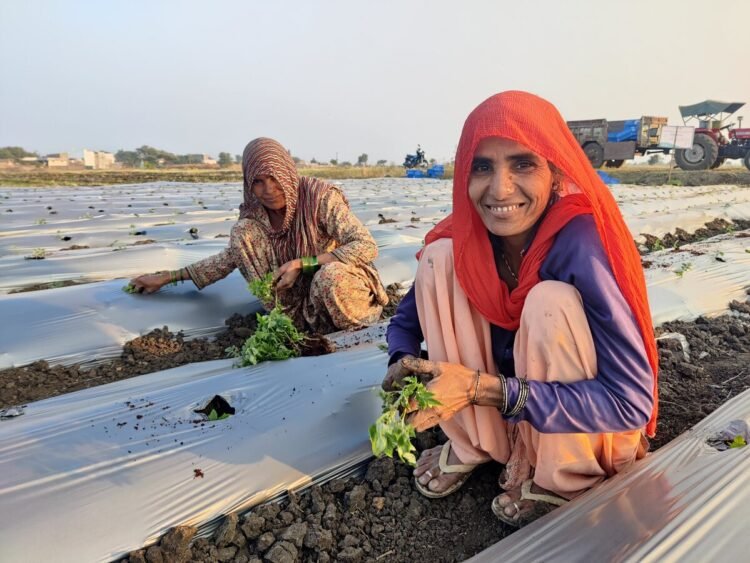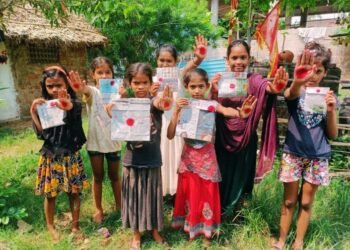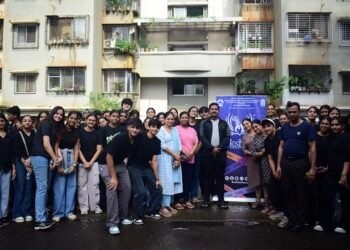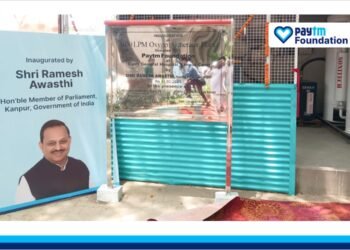By Anjali Makhija and Ellora Mubashir
A crucial question facing India is food security of a population which is growing at a significant rate, while the arable land is limited. This calls for sustainably enhancing agricultural efficiency, by improving resource efficiency and increasing productivity and quality of produce. For this, substantial support is necessary to be provided to women farmers who comprise about 75 percent of the full-time workforce in agriculture and engage about 80 percent of the rural women. These women farmers cultivating more than 85 percent of the land holdings are small and marginal, with an average field size of only 0.8 hectares. However, though they contribute around 60% of the total food grains and over half of the country’s fruits and vegetables, their agriculture is characterized by low productivity and income, perpetuating a cycle of poverty and indebtedness, which undermines national development.
Challenges Faced by Women Farmers
This demographically significant segment of women faces social, economic, and governance challenges that are deeply interconnected. Thus, tackling these adversities requires a multifaceted approach that combines targeted interventions and policies alongside initiatives enhancing their overall well-being, with the active participation of diverse stakeholders.
Key Issues Hindering Women Farmers
The issues faced by women farmers include (i) inadequate water for irrigation, for most of them (ii) absence of farm mechanization (iii) not being able to practice climate resilient agriculture (iv) low access to government benefits (v) not knowing scientific way of crop cultivation or having the required facilities for this. CBOs in conjunction with the government can deliver these requirements.
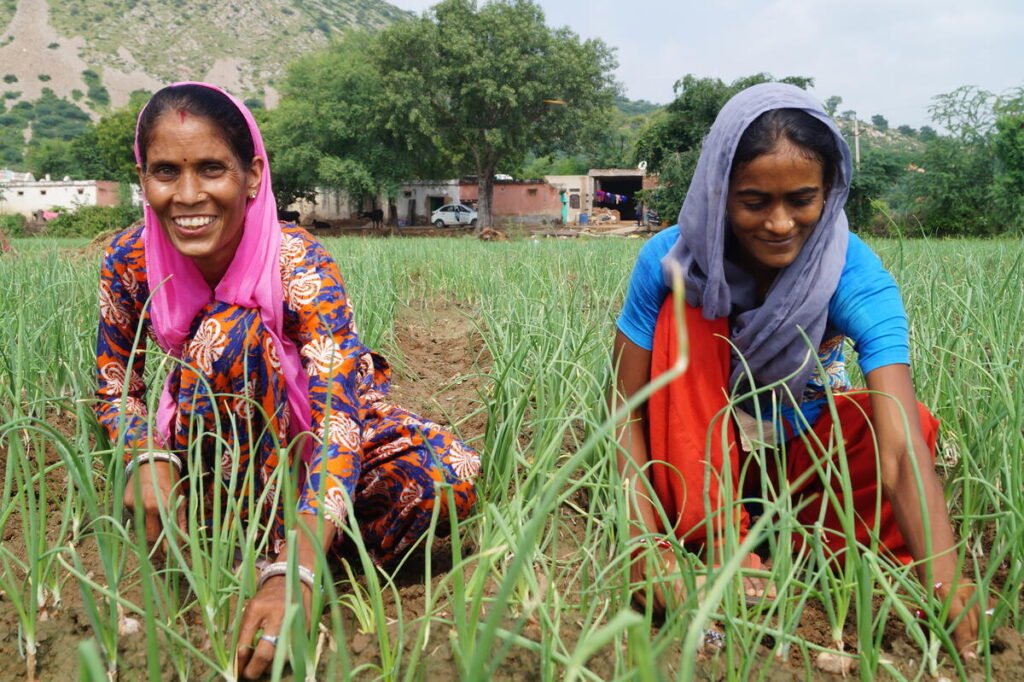
The central and state government budgets have meagre financial allocation specifically for women farmers and they are expected to benefit under other categories like women empowerment or allocations meant for both men and women farmers. In the latter case, often women farmers do not avail these opportunities due to factors like lack of awareness about them, low self-confidence, limited education and restricted mobility. There is a need for the government to earmark resources specifically for women farmers and the Civil Society Organizations (CSO) to assist these women in obtaining them, through information dissemination and undertaking initiatives addressing gender stereotypes.
Importance of R&D and Policy Reforms
R&D, especially in farm mechanization that is suitable for small and marginal land holdings, climate-resilient high-yielding seeds, and other agricultural inputs, is another crucial area requiring intensified focus from both government and private sector. While CSOs have a role in facilitating the adoption of new and superior cultivation practices through training women farmers. Women farmers would be assisted if the government – simplifies procedures in their schemes and programs, includes gender-budgeting in agricultural policies, incentivises joint land titles, digitizes land record systems for safeguarding women’s rightful shares, emphasises credit availability for women farmers and introduces joint eligibility for key government schemes.
The Role of Women Collectives and FPOs
Women collectives are now widely recognised and enabled by both government and CSOs for benefiting the members and enhancing efficiencies. Agri-enterprises including processing units are successfully being set-up by collectives. Examples of some women groups are – Mahila Sangathans, Farmer Leadership Schools, women Farmer Interest Groups (FIGs), Custom Hiring Centers (CHC). The government is committed to putting SHGs in place throughout the country as they are a proven success. A more recent development is Farmer Producers Organizations (FPOs), having both men and women members, which are being actively promoted by both the government and CSOs. They operate across the entire agricultural value chain and leverage economies of scale and have increased bargaining power. FPOs are a platform for training, dispensing farm machinery on hire to its members and effective marketing. Even though still rare, wherever exclusively women FPOs have been established they have vastly transformed the lives of women farmers.
Knowledge as a Tool for Empowerment
Knowledge is at the core of sustainably empowering women farmers and CSOs are crucial facilitators for delivering this. By enhancing both technical and leadership skills,while also fostering progressive mindset within the community, women farmers can become confident decision-makers and gain recognition as farmers, water champions, and change-makers.
About the Authors
Anjali Makhija is a Trustee and Chief Executive Officer and Ellora Mubashir, PhD, Project Documentation Specialist, S M Sehgal Foundation.
(India CSR)

